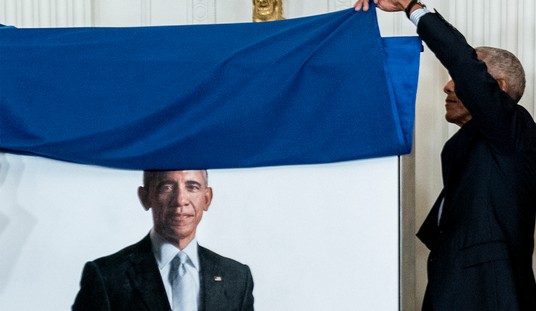There is much speculation regarding President Barack Obama’s intentions for America should he no longer need to hide his desires from an electorate. Occasionally, he and other members of his administration let slip glimpses of their preferred utopian future, as they have recently done with education policy. If their desires are implemented, the consequences for American education — and society — will be profound and uniquely destructive.
One of the best ways to determine if a given school is competent and professional is to ask its principal about the school’s discipline philosophy. If his first and primary goal is not establishing and keeping order, his school should be be avoided. Without certain and meaningful discipline, learning takes a back seat to misbehavior. If students understand that rudeness is tolerated, they’ll quickly escalate to misbehavior. If misbehavior goes unpunished, a significant number of students in any school will escalate to crime. Identify a school that is academically failing, and unfailingly the inmates are running the asylum.
On March 1, 2011, Attorney General Eric Holder testified before a House Appropriations subcommittee:
Chairman Frank R. Wolf, Virginia Republican, and Rep. John Culberson, Texas Republican, pressed Mr. Holder to stop giving evasive answers about scandals growing from the New Black Panther voter-intimidation case. Agitated, Mr. Holder objected to a statement by witness Bartle Bull that Panther behavior was the worst the civil rights activist had ever seen at the polls. “When you compare what people endured in the South in the ‘60s to try to get the right to vote for African-Americans, to compare what people subjected to that with what happened in Philadelphia … does a great disservice to people who put their lives on the line, who risked all for my people,” Mr. Holder said.
This was not Mr. Holder’s only invocation of his dedication to “my people.” On February 25, 2012, while giving a speech hosted by 100 Black Men of Atlanta Inc., Holder mentioned his determination to mandate racial quotas for school discipline:
“We’ve often seen that students of color, students from disadvantaged backgrounds, and students with special needs are disproportionately likely to be suspended or expelled,” Holder said in Atlanta, Ga.
“This is, quite simply, unacceptable. … These unnecessary and destructive policies must be changed” …
Holder attributed his claim of racial disparity in school discipline to a 2011 study that he said showed “83 percent of African American male students and 74 percent of Hispanic male students ended up in trouble and suspended for some period of time.”
On July 26, 2012, Neil Munro of the Daily Caller reported that Obama signed a related executive order:
[The order created] a “President’s Advisory Commission on Educational Excellence for African Americans.” It will include senior officials from several federal agencies — including the Departments of Education, Justice and Labor…
This commission was established to promote:
“ … a positive school climate that does not rely on methods that result in disparate use of disciplinary tools.”
“African Americans lack equal access to highly effective teachers and principals, safe schools, and challenging college-preparatory classes, and they disproportionately experience school discipline,” said the order, titled “White House Initiative On Educational Excellence.”
The composition of the commission clearly indicates Mr. Obama’s intentions: he plans to use the full force of the Department of Education to implement a racially based system that will prevent discipline for primarily black students — and other non-white students as electoral expediency requires – and such a system will be enforced through criminal and administrative sanctions by the Departments of Justice and Labor. If progressive tactics in other facets of law such as voting and the environment are any predictor, it is highly likely any rules and mandates will not only allow but also invite lawsuits against local schools. It is equally likely that an Obama administration goal is the abolishment of the in loco parentis (in the place of the parents) doctrine in disciplinary matters.
Is it possible that Mr. Holder and Mr. Obama are right? Is discrimination against “students of color” rampant in American public schools? Are they truly excessively and unfairly disciplined? Mr. Holder appears to have cherry-picked his statistics:
Holder’s speech ignored the report’s conclusion that 59 percent of white males are also disciplined. He ignored other data suggesting that the different discipline rates roughly align with actual schoolyard behavior.
“Look at the demographics around that school and see if the same percentages are logged in the police reports [because] if the police are singing the same song, that issue [of disparate treatment] will not stand up,” said David Rettig, head of the National Character Education Foundation.
“Outside the walls of the school, how many of these kids are coming from not just dysfunctional homes, but homes that are not supportive of their children?” he asked.
The 2011 study Holder cited analyzed discipline in Texas schools. It was completed by the Council of State Governments’ justice center and the Public Policy Research Institute at Texas A&M University. It concluded that “students who were suspended and/or expelled, particularly those who were repeatedly disciplined, were more likely to be held back a grade or to drop out than were students not involved in the disciplinary system.”
Notice the passive language. Students repeatedly disciplined, suspended, or expelled were more likely to be held back or drop out than kids who were not. This is the classic language of victimization. Could it be possible that such students are held back or drop out because of their behavior, regardless of race?
Local control of education has traditionally made it possible to keep costs low and has allowed discipline to be swift, sure, and effective. Because educators act in loco parentis, they are allowed to impose the kinds of discipline on children that parents might impose without governmental interference. Discipline ranges from minor tasks and detentions imposed by a teacher to lengthier detentions imposed by a principal, in-school suspension, out-of-school suspension, and expulsion.
Suspensions might immediately escalate depending on the severity of the offense. Drug offenses, assaults, or other serious crimes are usually dealt with by means of an immediate suspension and a lengthy term in an out-of-school suspension facility. When a student is suspended for more than a few days, virtually every school has policies that invoke a form of due process review involving the student, parents, and their lawyer, if they wish, and of course due process protections apply when criminal charges are filed in the juvenile justice system or otherwise.
What this sort of system does is give a student the maximum chance to stop misbehaving and to perform well in school. By the time any student is actually removed from a school building for any length of time, he will have received multiple warnings, conferences with teachers, counselors, and principals, and multiple lesser forms of discipline. Introducing race into the mix will have a particularly harmful effect.
If a racial discipline quota system is established — and this seems the certain goal of Mr. Obama and Mr. Holder — schools will suddenly become accountable to the DOJ. If the black school population is 9% but black students commit 28% of all disciplinary infractions, educators will have bizarre and harmful choices to make, for they will have to ignore 17% of black discipline violators once their quota for the year is reached.
If education is about meeting the needs of each individual child — and it is — we must also ensure that the rights of all children are not infringed by the few or the ones that cannot or will not control themselves and make it difficult or impossible for others to learn. If every disciplinary measure becomes the business of the DOJ, if full due process rights apply when little Tommy won’t stop talking, education ends.
Imagine the paperwork, data production, and the legal processes federal involvement in school discipline will cause. School principals requiring permission from federal lawyers and bureaucrats to discipline children is not outside the realm of possibility for an administration that sees government as the solution to every problem (and every non-problem).
No rational legislator would enact such foolishness, but Mr. Obama has made it plain that when Congress won’t act, he will. Expect just that, coming to our schools in 2013.









Join the conversation as a VIP Member